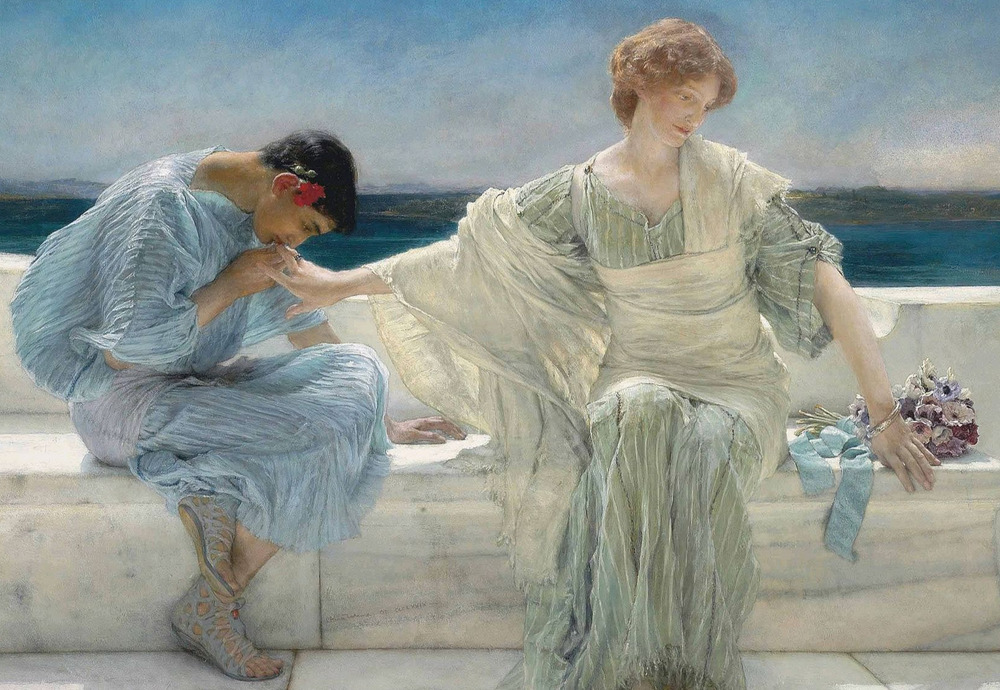interviews
A Restless Housewife, a Closeted Vagabond, and Lady Luck
Shannon Pufahl's "On Swift Horses" explores gambling and self-discovery in an era before gay visibility

From the title, you might think that On Swift Horses is about cowboys, horse wrangling, rural landscapes—and you wouldn’t be entirely wrong. Shannon Pufahl’s debut novel explores wide-open spaces and how people navigate them in a post-Depression, post-World War II, Baby Boomer era in Southern California where the land is steadily becoming ripe for the housing market, revealing a new world being built before the characters’ very eyes.
The story follows Muriel, newly wed to Lee, and her transient brother-in-law Julius. Their paths are not easy to navigate. The winding roads they take, both literally and metaphorically, reveal their methods of hiding who they are and what they want in order to fit in with societal expectations. For Muriel and Julius, gambling—at the race track and casinos, respectively—results in some hefty gains and unexpected losses. Muriel’s life is stationary but secretive; her trips to the track and her a life as a server and housewife seem good enough, until they aren’t. For Julius, a closeted gay man, his dismissal from the armed forces means stability is a fallacy, especially after he gets a taste of it. As their lives, fears, and desires rotate around one another in the narrative, the two rarely hold space in the same location, yet location is of utmost importance in the way Pufahl weaves a larger story of an ever-changing world and the people attempting to fit into it.
A Stegner Fellow and graduate of the Iowa Writers’ Workshop. Pufahl writes with confidence and unravels many layers, not just for the settings she describes but for the characters who inhabit them. She and I spoke a lot about locale and how it plays out in her work, the use of gambling as metaphor in On Swift Horses, and the ways in which vulnerability can play out for people over time.
Jennifer Baker: The occupancy of space is such an important thing in prose, especially in narrative. And you’re really putting readers in there from page one of On Swift Horses. Is [writing] setting more of your comfort zone?
Shannon Pufahl: I was just talking to somebody the other day and they were saying, “What do you want people to know about this book?” That I tried very much to create a world that people could recognize even though they haven’t been there. And I wanted to do that in the present tense and in that way without much exposition. The reader is sort of plopped into these spaces as if it were another world. A lot of what you learn about characters comes from their interactions with space and their physical gestures, right? So it’s not a book with a ton of interiority.
JB: Everyone is kind of operating within the space that they’re in due to comfort levels or even discomfort and expectations. You’re dealing with post-World War II; there’s so much expectation. But there’s also secrecy, too, and how the land kind of plays into that, especially for Julius who’s very nomadic. When you’re using land and space as well as time period, is that dictating more of your characters’ actions than you think?
I really wanted to write a book that was about queer life before there was really much public discourse about it.
SP: Oh yeah. I really wanted to write a book that was about queer life before there was really much public discourse about it. And certainly very little political language—and what little political language did exist was actually punitive or derogatory. So much of how you learn about the characters in the story comes from that place of not having very much language to describe what they want.
People with certain kinds of vulnerability find themselves very careful or very tentative in the spaces around them. In this book I wanted to get at what is it like as a man whose queerness is in some way evident to others, even if it’s not a thing that they can describe. And to be a woman in the mid-century in public places, and in places as an employee, and how that really did kind of create certain kinds of fragility and then dictate the way they interact in spaces. I think a lot of the things I learned as a kid about how to be around other people were largely protective. Protective of my not very feminine body. Or protective of what people drew out of me as a kind of “strangeness.” I think a lot of the desire to do landscape and physical gestures in this book had very much to do with having that kind of vulnerability.
JB: There’s also an element of invisibility. Particularly for Muriel as a woman to be hidden in certain spaces. I wondered: Do they feel protected, even in the performance space? They’re doing this to feel as though they won’t be objectified. I think it’s in the guise of safety, but they’re not safe because, like you said, there’s a level of vulnerability that’s always there.
SP: Especially for Muriel there’s a measure of relief when she is seen, however partially, by Julius. It’s a kind of desire for invisibility that’s a desire to prevent a kind of painful understanding. So when you’re someone like Muriel who is trying to figure out what she wants in a world that has limited opportunity for actualizing that, or even for finding the language for that, I think being misunderstood can be especially painful because you’re getting the kind of feedback from the world that doesn’t match your own internal experience. For Muriel it’s less about safety than trying to avoid being seen wrongly, which I think is how she lived most of her life. For Julius it is more about what are the ways I can disappear into a kind of sanctioned masculinity to avoid certain kinds of danger. Part of his arc is about working that out. Which I think is an arc that queer people have to work out in general. Of course there are many different experiences for being queer and some people have some opportunities for invisibility or visibility. But nevertheless I think part of the question for queer people especially is what parts are for me and what parts can be reasonably understood, what parts are for me and what parts are for a kind of political discourse, and negotiating all of those different languages.
JB: The past is always talking to the present and to the future. But when you’re a writer writing something that happened 70 years ago, do you see those things coming into play? And do you need to recognize that connection considering you’re writing from a contemporary lens?
SP: I was really interested in writing a historical novel from this period because I really did want to write about queer life before there was a political movement that made it visible and named. I mean there were always pockets of that. But I think in particular queer life outside of the urban centers of the time period where people had formed communities. So largely queer people from the rural working classes, who are my people. But I think it’s also these questions keep coming up and have kept coming up for 100 years in large part because we’ve not really found reasonable, social ways to deal with issues that have to deal with identity and disenfranchisement.
One of the little plots that exists inside this novel is about the displacement of lots of different people from Southern California during that time, and the way that if you were to look at a kind of time lapse of San Diego and L.A. you would just see increasingly marginalized communities shuttled off into places that are difficult to live in for one reason or another. I don’t think I make a lot of those [points] very openly. But I do think it is in the universe in which the story occurs. The sort of mounting changes that are brought by the interstate systems, the real first modern housing boom in Southern California, and the people who ended up redlined in other parts of the city that now look the way they look, which is largely, I suppose you might say, segregated. So to me that’s sort of where it starts. And that is definitely part of the story these characters are enacting.
JB: Let’s get into the casino life. Gambling is something I don’t read about often. I don’t know if this is by chance or if it’s not on my radar. But I haven’t had the opportunity to read too many books on gambling that also didn’t necessarily center addiction. In general and in the casino life characters like Julius take risks and great risks for various reasons. I liked this tether, the risk and loss of control plus that excitement and that fear in case you get caught. But the dramatization, especially in novel form, of gambling and especially gambling that isn’t about addiction.
There may not be that many books that deal intricately with gambling, but there are many that understand it as a metaphor for people’s lives.
SP: I love gambling. I’ve done a lot of it in my life. And I think I was really interested in what is actually like to be sitting in a card game, to be playing cards. And what are the stakes? And how do these things that most people don’t think about change the circumstances in which you’re playing that game? Gambling is a terrific metaphor. There may not be that many books that deal intricately with gambling, but there are many that understand it as a metaphor for people’s lives and what it is that they’re actually looking for and all of that. But I think one thing that interested me, and it shows up early in the story, is exactly that: Why would you win all this money and stick around? In what cases is it a benefit to stay in loss and in that way kind of upset fortune? How is that something that people do very often as a way of protecting themselves from whatever dangers they see in the world? That’s essentially Julius’s first scene, right, when he’s playing cards and he’s winning and he’s starting to realize that winning is dangerous in that context. So I’m very interested in that question, but I also think one of the things that’s important to me is to reaffirm the value of risk-taking. It’s a very difficult time that we’re living in, for various reasons, and it’s a very anxious time. One of the things I’m interested in in my own life is figuring out how uncertainty can be repurposed. In what ways can uncertainty be made into something that is vital and enlightening rather than something that seems like every day that much more ineffectual? But also the idea of leaving for the sake of some kind of social protection is something that a lot of queer people will understand. I think hopefully marginalized people in general, but I think queer people will. In what ways are you creating social spaces for yourself that may be to your kind of immediate detriment but are in the service of your protection in the longer time? That made sense to me as a way of thinking through the process.
JB: At the end of the day with these characters, do you feel—and maybe this is an unfair question—they get to a place of comfort?
SP: I think that for me I was so resistant to writing anything like a coming out story, which does kind of have that arc, right? Where it begins in discomfort and ends in comfort. Where it begins in darkness and ends in visibility. I think for lots of reasons there’s something conventional at this point about that story, which is actually a great thing that there’s kind of conventions around something so politically important. But, also, [On Swift Horses] is set in a time before that story really existed. It’s really not until the late ’60s and ’70s and movements in New York and San Francisco where coming out and making public declarations about yourself or your sexuality became the political tool that we understand it to be. What would that even look like in the mid/late ’50s? So instead of that kind of story, I was very interested in how is it these characters find a way to describe their own desires or to invent for themselves something that looks like a livable life. If I think about it that way, I think that the characters have found ways to have a livable life. And livable is not necessarily good or bad.
Before you go: Electric Literature is campaigning to reach 1,000 members by 2020, and you can help us meet that goal. Having 1,000 members would allow Electric Literature to always pay writers on time (without worrying about overdrafting our bank accounts), improve benefits for staff members, pay off credit card debt, and stop relying on Amazon affiliate links. Members also get store discounts and year-round submissions. If we are going to survive long-term, we need to think long-term. Please support the future of Electric Literature by joining as a member today!









